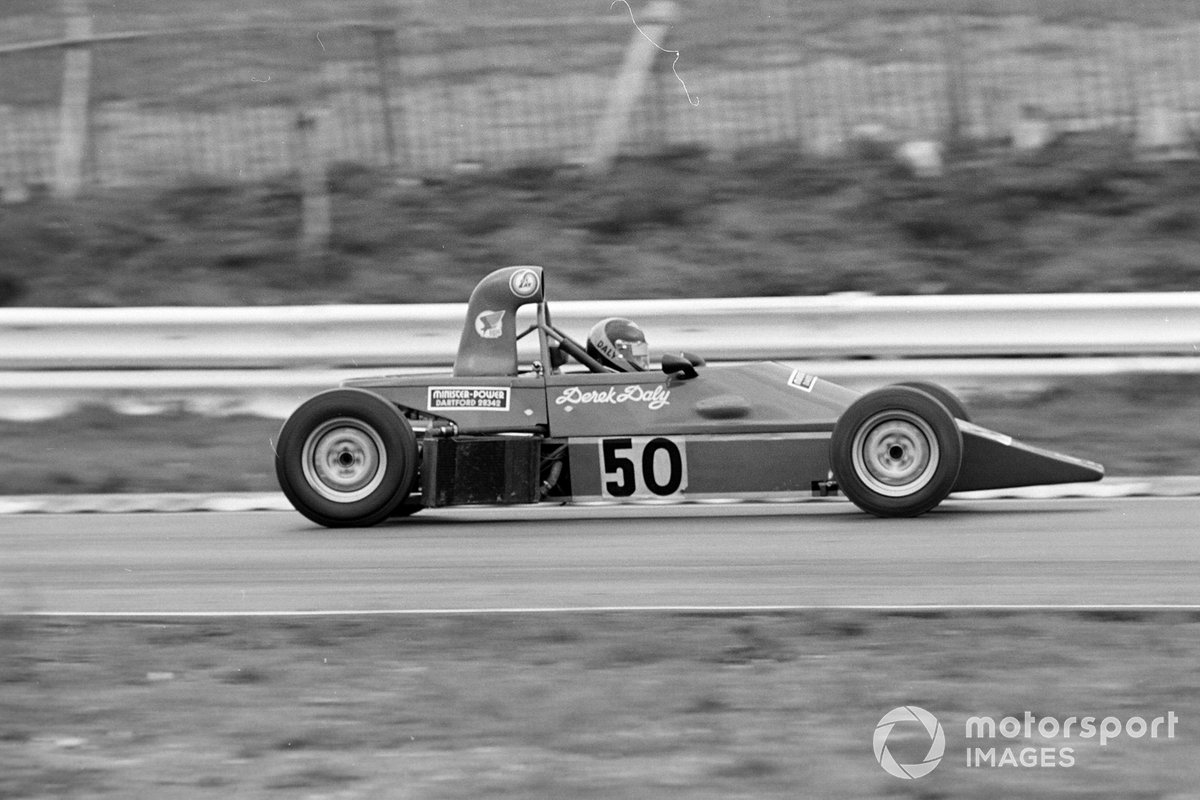
Lazenby built an Austin 7 Special in his youth, then, following RAF service, he worked at Lotus. Initially, he worked in the Elite assembly shop, before joining Colin Chapman’s Team Lotus, under Jim Endruweit.
Preparing Clark’s F1 cars, and on the Indianapolis 500 crew with which the world champion won at their third attempt in 1965, brought action and adventure before he joined Lotus Components.
The skilled fabricator left in 1968 to manufacture parts and Formula Ford cars. Unlike Lotus, which had monopolised FF1600’s first year, Lazenby’s Hawkes would use VW-based Hewland gearboxes rather than fragile Renault units.
The long-nosed Hawke DL1 appeared in 1969, developed by sales manager Tony Roberts. Around 35 production DL2s were made over three years, from workshops in Essex and Hertfordshire.
Tom Walkinshaw’s 1969 Scottish title in a DL2 put him on the racing ladder, while Dane Tom Belso and Canadian importer Gary Magwood were among those who impressed in them.
Despite strong sales, finances dwindled as rival manufacturers joined the fray but Roger ‘Mac’ McKinstry helped restructure the enterprise, bringing the experienced and underrated Syd Fox in to race the works DL9.
Future FF1600 star Rick Morris credits his career to ‘Lazo’. “I knew nothing when I bought a DL2 but, after I set fastest lap at Thruxton in 1973, he gave me a DL11, a DL12 [in which Morris was runner-up in the 1975 BAF series] and a DL15 in later years,” he recalled. “We never had a cross word.”

The inboard front-suspended 1976 DL15 was hugely successful, wins by Derek Daly, Derek Warwick and Bernard Devaney contributing to 65 sales. Daly won the Festival – Brands Hatch’s first – in one badged as a prototype DL17.
After winning slicks-and-wings FF2000 races from 1975-77 with Tiff Needell, Geoff Friswell and Philip Bullman, and building an Adrian Reynard-designed F3 model, Hawke’s FF1600 star waned, despite the brilliant efforts of James Weaver.
Hawke’s owner since 1978, British Air Ferries boss Mike Keegan (Rupert’s father), had grandiose F1 plans but closed the Southend factory in 1979.
Lazenby’s Pace Products subsequently specialised in oil pumps and after-market turbo conversions for road cars in Suffolk. He was also an early director of successful racing team Pace Historics.







